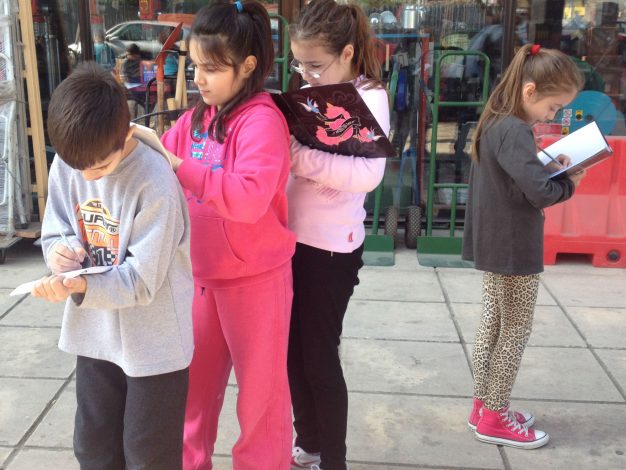
How participatory planning helps children in school
School education plays a significant role in the personal and social development of a child. However, nowadays, it tends to focus more on strengthening the academic skills and less on emphasising the human values and principles, which are essential in the development of a well-rounded education for an individual.
This article aims to highlight the importance of collaboration and interaction between children during the learning process. It, therefore, suggests a participatory planning process as an engaging learning activity, which could be applied to many subjects in the classroom. The advantages of a participatory planning process do not only lie in designing a space that facilitates better the needs of a child, but has educational benefits as well.
Participatory planning project
Participatory Planning is an urban planning method that aims to engage and involve the community in the strategic and design process of a project. It is widely used in the design process of Child Friendly Spaces, since it enhances the quality of the project by taking into consideration the insights of the children, who will eventually be the users of the space. For the purpose of this article the Y-Plan Initiative is being used as an example.
“Grounded in over a decade of educational research, Y-PLAN’s 5-step solution-oriented methodology demonstrates a “double bottom line” of positive outcomes for students and communities. By engaging young people as critical participants and agents of change in their communities, Y-PLAN prepares everyone – youth and adults alike – for the 21st Century workforce and a democratic society.”
5 steps of the Participatory Planning Process
Start Up – Introduction:
Why are we doing this?
Who are our partners?
What do we mean by participatory planning?
Why it is important to participate?
Making Sense of the City – Tell the Story:
What is this project about?
What data do we need to gather?
What outcomes are we expected to deliver?
Into Action – Workshop:
What do we enjoy about this project?
What would we dream for this project?
Let’s discuss about it
Let’s form a proposal
Going Public – Presentation:
Let’s illustrate our ideas
Let’s communicate our ideas
Spread the word for change
Looking Forward and Back – Reflection:
What does this process mean to us?
What did we learn?
Participants learn new skills
The number of social skills that are being developed during the participatory process is fascinating. A sense of responsibility, working towards a common objective, collaborating, fostering dialogue, mutual appreciation, empowerment, leadership are just a few of them that indicate how this process can facilitate a more complete and balanced education.
“One important thing I learned during the Y-PLAN was how to be a good team-member. I learned how to listen to other people’s thoughts and how other people’s opinions matter. As a result of the Y-PLAN I pay more attention to my teacher and as a learner, I’m open to criticism and I can learn how to add more to whatever I am doing,” said Y-PLAN student from the New Orleans.
“I learned the difference between equality and equity. I’ve also learned adults aren’t the only ones who can make a difference. Us teens, including freshmen, have the power to change and to improve our school and our community,” said another Y-PLAN student.
“The Common Core in Action! Our students loved this experience. It began with an idea and continues to grow into great journey of learning, sharing and caring. I am smiling out loud and I hope you will too. Please come by and see what all of our students are capable of. Job well done!,” remarked Y-PLAN Principle, San Francisco.
The importance of reshaping today’s education
Considering the great social changes and the horrifying incidents that have taken place worldwide lately, it is rather crucial to address the lack of solidarity, equality and unity in the contemporary world. It is urgent to work more on ensuring a well-rounded education that celebrates human values and moral principles, which are immensely needed for the next generations. A statement that couldn’t be phrased better than with the words of a 13-year-old boy.
“Educate the children of today for a better tomorrow”, proclaimed 13-year-old Shah Abdul.
Shah Abdul is a student of class three in Pakistan. He is a Pakistani children’s rights activist, children leader and an activist against child labor. He founded the Chicheqan Jirga (lit. Children Jirga) in 2014 and has acted to protect the rights of children in Pakistan. He is motivating the children to acquire education, while strongly discouraging child labor in his native town.
Resources:
Roger A. Hart, “Children’s Participation – From Tokenism to Citizenship”, Innocenti Essays No.4, UNICEF International Child Development Centre Spedale degli lnnocenti Florence, Italy, 1992.
“Y-Plan” Handbook, Center for Cities and Schools UC Berkeley, USA.




